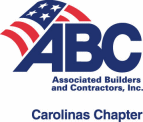I’m thrilled to welcome my first guest blogger, Danielle Rodabaugh, to N.C. Construction Law, Policy & News. Danielle is chief editor at SuretyBonds.com, a nationwide surety provider that issues construction bonds to contractors every day. As a part of the company’s educational outreach program, Danielle writes articles to help construction professionals understand the intricacies of surety bonds and the underwriting process. You can keep up with Danielle on Google+.
Whether you’re new to the construction industry or have decades of experience under your belt, you probably have some questions about surety bond acquisition and what goes into the underwriting process. Before we go much further, though, I’d like to review the basics of how surety bonds work and why they’re required.
Surety bonds ensure project completion.
When surety bonds are used on projects, they’re known as “contract bonds” or “construction bonds.” Project owners require them to ensure construction professionals work according to terms laid out in contracts.
There are a number of different contract bond types. Some of the most common ones are license bonds, bid bonds, performance bonds and payment bonds. No matter what kind of surety bond you need, it will function as a legally enforceable contract that binds together three parties:
- The individual contractor or contracting firm that buys the bond is the principal.
- The project owner, which is typically a state agency, that requires the contractor to be bonded is the obligee.
- The insurance company that issues the bond bond is the surety.
If a contractor fails to fulfill the bond’s terms, then the obligee can make a claim on the bond’s sum to gain reparation for any damages or financial losses.
Contractors have underwriting options.
If you’re a contractor who’s looking to get a surety bond, you have a few different options. The fastest and easiest way to get a bond is to search for a nationwide surety provider online. With the advent of the Internet, all the major surety providers have developed easy access for contractors who are looking for surety bonds. Some surety companies only operate in a few states, so be sure the surety agency you choose to work with can issue bonds nationwide. This way, you know the surety is licensed to underwrite bonds wherever your project might be.
If you’re turned down by a nationwide surety provider, you should contact a local insurance agency. Although rare, sometimes contractors have good relationships with local insurance agents who have access to large bonding capacities. Small contracting firms that aren’t able to qualify for bonding from commercial surety providers or local insurance companies can look to the Small Business Administration. The SBA’s Office of Surety Guarantees provides bonding coverage to small contractors who need bonding assistance up to $2 million.
Contractors can prepare themselves for the application process.
Because so much risk is inherently involved with construction projects, getting construction bonds requires much more time and effort than getting other surety bond types. Depending on the type of bond you need and its amount, your underwriter might consider a number of different factors to determine whether you qualify. To make the process run more quickly and smoothly, contractors should prepare the following information before applying:
- financial credentials, including tax records and credit scores
- all business licensing and registration documents
- a list of past projects
- valid references from project owners and surety providers you’ve worked with in the past
As long as surety providers continue to use conservative underwriting practices, only contractors who qualify for bonds under strict surety guidelines will be approved. Contractors who have a grasp on surety bond underwriting will be better prepared for the surety bond application process.
Thanks, Danielle! And to my readers, you can click here for more on contractor bonding through SuretyBonds.com.








Thank you Danielle. Very informative article!